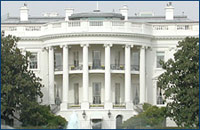 The current crisis our nation faces on Wall Street and in the broader economy will be the primary focus of the next President. The crisis is complex, with many facets, and any solution will be equally complex. Issues such as the effectiveness of regulatory oversight versus deregulation, the transparency of specific types of financial transactions and market actors under current law, and the proper accounting rules to ensure an accurate depiction of a banking institution’s financial health will all be part of the debate over how to resolve the present crisis and how to prevent a future recurrence. However, my advice to the next President is that he should not overlook the beneficial role that private civil lawsuits under the securities laws can play in deterring risky market behavior.
The current crisis our nation faces on Wall Street and in the broader economy will be the primary focus of the next President. The crisis is complex, with many facets, and any solution will be equally complex. Issues such as the effectiveness of regulatory oversight versus deregulation, the transparency of specific types of financial transactions and market actors under current law, and the proper accounting rules to ensure an accurate depiction of a banking institution’s financial health will all be part of the debate over how to resolve the present crisis and how to prevent a future recurrence. However, my advice to the next President is that he should not overlook the beneficial role that private civil lawsuits under the securities laws can play in deterring risky market behavior.
Much has been made of the greed and speculative fervor that gripped the investment professionals on Wall Street. Clearly bets were being made with borrowed money that risked the very existence of institutions that are necessary to preserve the liquidity of capital in our markets. Expanding the oversight of the Treasury Department, increasing the transparency of transactions that involve derivatives and hedge funds, and re-examining accounting rules may all be necessary components of a plan to avoid such risk-taking in the future, but they will not be sufficient in and of themselves. From personal experience in the boardroom, I can vouch that nothing deters executive approval of speculative investment strategies as much as the prospect of a potential civil lawsuit if the deal goes sour.
Federal judges have been antagonistic towards plaintiff’s litigation alleging securities fraud for decades. The Supreme Court has deliberately sought to reduce frivolous lawsuits by interpreting the reach of Rule 10b-5 in ways that limit meritorious suits as well. Cases such as Tellabs, Inc. v. Makor Issues & Rights, Ltd., 127 S. Ct. 2799 (2007), and Stoneridge Investment Partners LLC v. Scientific Atlanta, Inc., 128 S. Ct. 761 (2008), are but the latest examples of this judicial attitude. And of course Congress has acted as well to limit private suits through the Private Securities Litigation Reform Act of 1995 (passed over President Clinton’s veto) and the Securities Litigation Uniform Standards Act of 1998.
The hostility of federal judges towards frivolous lawsuits is easy to understand. The judge can observe firsthand the cost that an unwarranted claim of securities fraud imposes on the corporate defendant and its executives. However, federal judges do not observe firsthand, and therefore undervalue, the deterrent effect that the possibility of a securities fraud lawsuit (even an unwarranted one) has on the willingness of market actors to engage in speculative behavior. The restrictions on private litigation over the last decade or so have substantially reduced this deterrent, and have undoubtedly contributed to risky boardroom decisions. These restrictions have also greatly reduced the ability of a corporate lawyer to act as a “gatekeeper” and police the quality of executive decision-making. When corporate executives are discussing risky financial strategies, speculation is often replaced by prudence after the lawyer asks how the executives would defend their decision if challenged in court.
President Clinton was roundly criticized as beholden to the plaintiffs’ bar when he vetoed the Private Securities Litigation Reform Act. The next President should reflect upon whether Bill Clinton was correct to do so, and whether private securities litigation plays an important role in deterring excessive risk-taking in the markets. Our nation’s ability to avoid a future financial crisis may depend on it.

One example of the excessive risk-taking discussed in this post:
“Top officials at American International Group Inc. knew of potential problems in valuing derivative contracts long before these risky transactions caused the insurer’s shareholders severe pain, according to documents released by congressional investigators.”
Source: Wall Street Journal, October 11, 2008